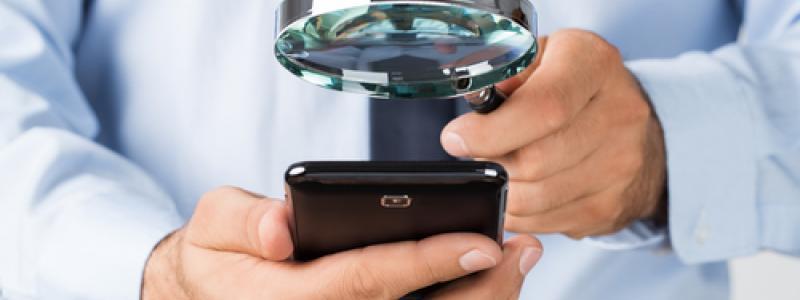Watchdog Groups Not Happy With Border Mobile Phone Searches

Apparently, there has been an increase of mobile device searches by border agents at American entry points lately, and watchdog groups are already raising concern about it. They are particularly not happy with a couple of recent incidents -- one that happened at the George Bush Intercontinental Airport in the city of Houston in Texas, and another one at the Los Angeles International Airport.
In the first incident, Sidd Bikkannavar, a scientist at NASA, was detained when he returned to the US from Chile, and then refused to accede to the requests of the CBP agents to have his device searched. And then in the LAX incident, Haisam Elsharkawi, a businessman based in the city of Anaheim in California, was stopped and questioned by CBP agents as he was about to fly to Saudi Arabia.
A US Senator is now also demanding answers -- Senator Ron Wyden recently sent a letter to John Kelly, the Secretary of Homeland Security, asking for an explanation with regards to the border mobile phone searches. On top of that, Wyden also revealed his plans of drafting legislation that will require warrants for electronic device searches at borders, saying that these policies are potentially violating the Fourth and Fifth Amendment rights.
Moreover, Wyden called these border mobile device searches “deeply disturbing” especially after Kelly recently hinted that the CBP may start requesting visitors to the US to provide their social media passwords. Apart from concerns related to privacy, Wyden believes that these searches can also have an impact on the economy and even homeland security -- for instance, why are agents busy annoying people at visitors when they should expend their resources to those who truly pose a threat to American citizens. And quite simply, businesses may now think twice about sending their employees across the border out of fear that the security of any sensitive data they carry may be compromised.
Existing policies regarding mobile phone searches at borders are not that adequately defined. Typically, this searches require warrants, but legislation in 1976 and 2004 have reduced claims to Fourth Amendment privacy for those entering the United States. According to a current CBP tearsheet, handsets can not only be subject to search and seizure, but off site forensic inspection and copying. There is nothing that CBP agents can do to hinder legal US residents from entering America even if they refuse to provide information in order to unlock their devices, but these agents, however, can cause some unneeded hassle.
Related Blog Articles
- A Guide To All The Newest Smartphones Just Recently Unveiled (So Far)
- IDC: Global Smartphone Shipments Will Bounce Back This Year
- SoundCloud Introduces $5 Subscriptions
- Americans Now Spend 5 Hours A Day On Mobile Devices
- The Upcoming Galaxy S8: Samsung’s Best Hope In Forgetting Last Year’s Disaster
- Android Now Threatening Windows’ Title As World’s Most Popular Operating System
- 170+ Groups Supporting Net Neutrality Send Letter To FCC Chairman
- AT&T’s Service Restored After Hour-Long 911 Outage
- New Study: Pokemon Go Players Walk An Additional 2,000 Steps Each Day
- US Senator Preparing Bill That Would Require Border Phone Searches To Have A Warrant
Related Blog Posts
- Report: Drug users are using wearable devices during binges
- Spotify allows Android users to reorder playlists; Pandora lets users share tunes to Snapchat Stories
- WhatsApp combats fake news with a new forwarded label
- FCC: Today’s improving mobile networks can impact healthcare costs
- Did Apple Music already overtake Spotify in America?


 Menu
Menu